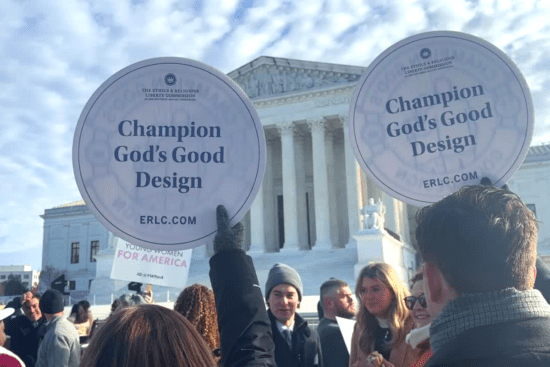A new group is dominating America’s religious landscape. According to a recent survey report from the Public Religion Research Institute, nearly 25 percent of Americans now “claim no formal religious identity.” In less than three decades, these “nones”—Americans claiming no formal religious affiliation—have grown from only six percent of the population into “the single largest ‘religious group’ in the U.S.”
This represents a staggering shift in America’s religious patterns. For decades, the Christian religion has dominated America’s religious and social life. But the rapid increase in the number of religiously unaffiliated Americans has already weakened traditional structures of American Christianity, and even more significantly, these trends likely portend a more secular future in terms of our nation’s public life.
The report indicates that the “growth of the unaffiliated has been fed by an exodus of those who grew up with a religious identity.” While the ranks of unaffiliated Americans have swelled more than 15 percent, the three largest Christian groups, Catholics, white mainline Protestants and white evangelical Protestants, have all declined over the same period. Of these three, Catholics have suffered the largest decline, falling more than 10 percent. The research shows, “Nearly one-third (31 percent) of Americans report being raised in a Catholic household, but only about one in five (21 percent) Americans identify as Catholic currently.” At the same time, white evangelical Protestants and white mainline Protestants are also experiencing negative growth, falling 2 percent and 5 percent of the total population, respectively.
The effects of divorce
The nature of these statistics leaves us with many questions, especially as we recognize that these declining percentages represent millions of people abandoning organized religion. So, we must ask, how did we get here?
The answer to that question is both complex and multi-faceted, but there is an interesting correlation mentioned in the PRRI’s report. Listed in the findings among the causes of disaffiliation is divorce.
Consider the following data:
- Previous research has shown that family stability—or instability—can impact the transmission of religious identity. Consistent with this research, the survey finds Americans who were raised by divorced parents are more likely than children whose parents were married during most of their formative years to be religiously unaffiliated (35 percent vs. 23 percent respectively).
- Rates of religious attendance are also impacted by divorce. Americans who were raised by divorced parents are less likely than children whose parents were married during most of their childhood to report attending religious services at least once per week (21 percent vs. 34 percent, respectively). This childhood divorce gap is also evident even among Americans who continue to be religiously affiliated. Roughly three in ten (31 percent) religious Americans who were brought up by divorced parents say they attend religious services at least once a week, compared to 43 percent of religious Americans who were raised by married parents.
These conclusions are certainly revealing. While divorce is by no means a definitive factor in determining whether an individual will continue to adhere to the religion of his or her youth, the data demonstrates that there is a strong correlation in this regard. The research positively establishes the fact that stability in the family increases the likelihood that an individual will develop strong religious habits. And conversely, it indicates that “the children of divorced parents have grown up to be adults of no religion.”
The importance for evangelicals
This is incredibly instructive for us as evangelicals. We have long maintained that the way we live tells the world what God is like. For Christian parents, it is equally true that the way we live tells our children what God is like. It should not be surprising then that our children have such difficulty maintaining their religious beliefs after the divorce of their parents.
We should take heed of these statistics and consider them in light of our own practices. For too long, our churches and pulpits have been silent on the issue of divorce. And the data indicates that this has crippled the faith of an entire generation:
Today, nearly four in ten (39 percent) young adults (ages 18–29) are religiously unaffiliated—three times the unaffiliated rate (13 percent) among seniors (ages 65 and older). While previous generations were also more likely to be religiously unaffiliated in their twenties, young adults today are nearly four times as likely as young adults a generation ago to identify as religiously unaffiliated. In 1986, for example, only 10 percent of young adults claimed no religious affiliation.
In response to this, we must consider carefully, our responsibility to cultivate Christ-centered marriages and families. And this reflection should take place on at least three levels.
- What can parents do? The family is the center of nurture and formation for the individual. Christian parents should strive to love their children and to raise them in the fear and admonition of the Lord (Deut. 11:19, Eph. 6:4). Moreover, husbands and wives should strive to cultivate and maintain a healthy and sustainable marriage that is built on the foundation of the gospel, in order that their children might observe an accurate and healthy picture of the love and goodness of God. And in this regard, fathers should assume the responsibility of exercising spiritual leadership over their households.
- What can pastors do? Pastors should seek to equip their congregations with the resources and biblical wisdom to pursue gospel-centered marriages and families. Pastors should also assume the burden of speaking the truth about the issue of divorce. They must strive to faithfully uphold the teachings of Christ. This includes counseling, confronting and rebuking those under their care who may be tempted to forsake their marriage vows or those unwilling to cultivate a gospel-centered home.
- What can the church do? Local churches must recognize their unique stewardship in both partnering with parents to raise and disciple their children and to exercise spiritual care over one another. It is the duty of the local church to support and help sustain the marriage covenants represented among their membership. It is also the duty of the local church to love, assist, confront and rebuke those who fail to honor their commitments to the Lord as husbands, wives, daughters or sons.
It should be our desire to see our local churches filled with gospel-centered families seeking to share their lives with one another for the good of the church and the glory of God. We cannot be silent on the issue of divorce. For the faith of our children and the integrity of our public witness, we can and must do better. God help us.










